Studies show that people who eat a balanced dinner within 2 hours of bedtime experience 20% better sleep quality. This is not it, as dinner plays a key role in daily nutrition and energy balance. Despite its importance, many people wonder how many calories a dinner should contain to stay healthy, improve sleep, and maintain weight loss goals.
Therefore, knowing the right amount of calories will help you plan smarter meals. This is why this guide explores the perfect range of calories for dinner and offers you insights to keep your plate satisfying with easy meal plans.
In this article
Part 1. How Many Calories Should a Dinner Be for Different Goals?
If you want to know how many calories should be in your dinner, here is a quick estimate as per your weight goal. Get to know how many calories you need for weight loss, weight gain, or weight maintenance and live a healthier life.
| Goal | Recommended Dinner Calories | Ideal Daily Calorie Range | Macronutrient Focus |
| Weight Loss | 400–600 kcal | 1,200–1,800 kcal | 40% protein, 30% carbs, 30% healthy fats |
| Weight Maintenance | 500–700 kcal | 1,800–2,400 kcal | 30% protein, 40% carbs, 30% fats |
| Muscle Gain | 600–900 kcal | 2,400–3,200 kcal | 35% protein, 45% carbs, 20% fats |
Part 2. How Many Calories Should My Dinner Be According to Age & Gender
For those who question how many calories my dinner should be, know that age and calories go hand in hand. Therefore, this section offers you detailed insights into how many calories you need to consume as per your age:
| Category | Recommended Dinner Calories | Average Daily Calorie Needs | Nutritional Focus | Special Notes |
| Teenagers (13–19 years) | 600–800 kcal | 2,000–2,800 kcal | Higher protein and complex carbs for growth | Growth years need balanced meals rich in protein, calcium, and iron. |
| Adult Women (20–50 years) | 500–700 kcal | 1,800–2,200 kcal | Balanced carbs, lean protein, and fiber | Helps maintain energy, hormone balance, and healthy metabolism. |
| Adult Men (20–50 years) | 600–800 kcal | 2,400–2,800 kcal | Protein-rich with moderate carbs | Supports muscle repair and sustained energy throughout the evening. |
| Pregnant Women | 600–800 kcal | 2,200–2,600 kcal | Iron, folate, omega-3, and protein | An additional 300–400 kcal daily is needed for fetal growth; avoid empty calories. |
| Seniors (60+ years) | 400–600 kcal | 1,600–2,000 kcal | Easy-to-digest protein, fiber, and calcium | Focus on lighter meals with nutrient density to aid digestion and bone health. |

Part 3. How Many Calories Should a Dinner Be: Easy & Healthy Recipes to Try
Now that you have an idea of how many calories a dinner should be, based on your age and goal, it's best to incorporate some healthy meals. Thus, this section offers you five simple and easy recipes that you can easily cook for dinner while maintaining your goal:
1. Grilled Chicken with Quinoa and Steamed Vegetables
This meal is a combination of lean protein, complex carbohydrates, and fiber for a balanced dinner. The grilled chicken increases satiety and promotes muscle health. On the other hand, quinoa and vegetables contain vitamins, minerals, and antioxidants. Overall, this recipe is ideal for individuals seeking to maintain or lose weight while feeling full for more extended periods.
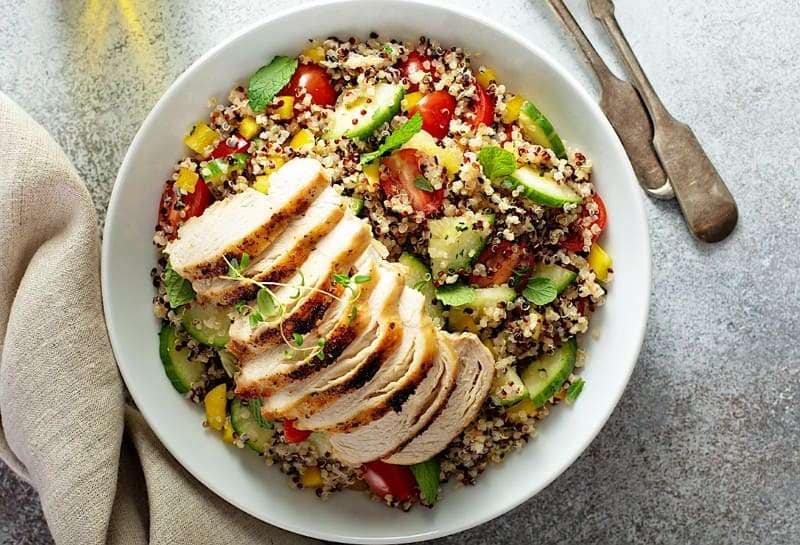
| Component | Serving Size | Calories (Approx.) | Nutritional Highlight |
| Grilled Chicken Breast | 150 g | 250 kcal | High protein, low fat |
| Cooked Quinoa | 1 cup | 220 kcal | Fiber-rich complex carbs |
| Steamed Vegetables (Broccoli, Carrots, Beans) | 1 cup | 80 kcal | Vitamins and antioxidants |
| Total Calories | ≈550 kcal | ||
2. Baked Salmon with Brown Rice and Roasted Vegetables
When learning how many calories a dinner should have, try this healthy and protein-rich recipe. This omega–3–rich meal supports heart health and helps keep you energized throughout the evening. Baked salmon provides healthy fats and complete protein. Additionally, brown rice and roasted vegetables complement the meal with complex carbohydrates and essential micronutrients.
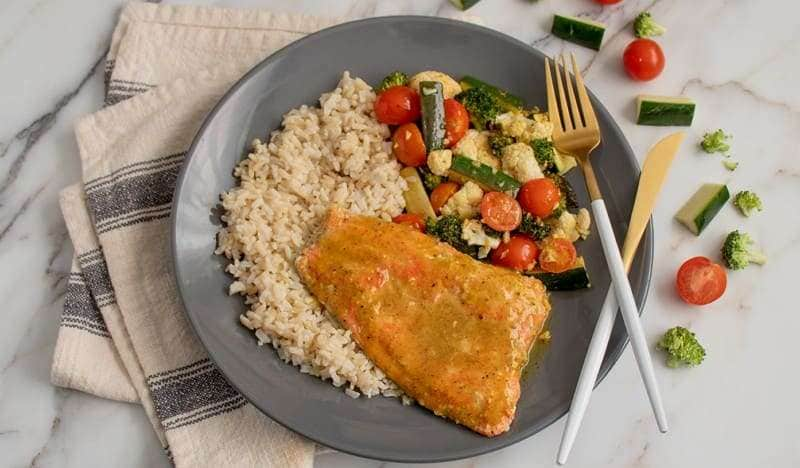
| Component | Serving Size | Calories (Approx.) | Nutritional Highlight |
| Baked Salmon | 120 g | 280 kcal | Omega-3 fatty acids, protein |
| Brown Rice | ¾ cup | 180 kcal | Complex carbs, fiber |
| Roasted Vegetables (Zucchini, Bell Pepper, Carrots) | 1 cup | 100 kcal | Vitamins A and C |
| Total Calories | ≈560 kcal | ||
3. Chicken and Avocado Wrap
This wrap is great for busy nights or when you need something quick and healthy with fewer than 500 calories. The combination provides a balanced blend of protein, fiber, and healthy fats. Overall, it's a perfect option for weight management or post-workout recovery.
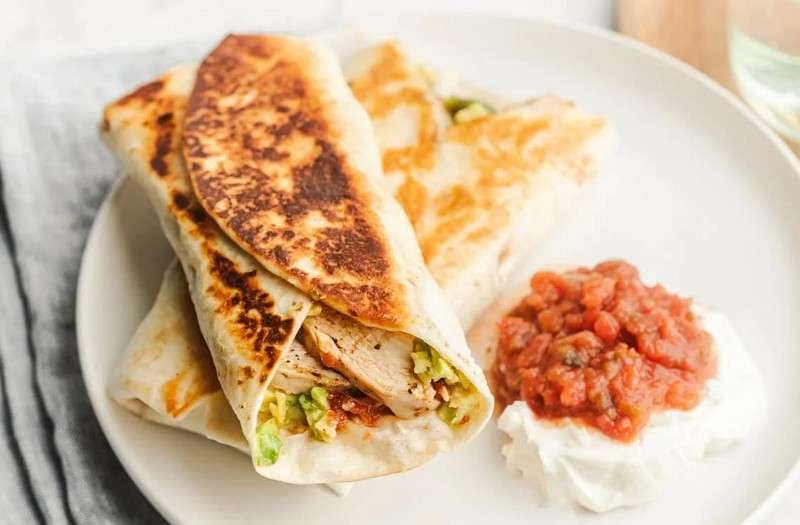
| Component | Serving Size | Calories (Approx.) | Nutritional Highlight |
| Whole-Grain Wrap | 1 medium | 130 kcal | Fiber and complex carbs |
| Grilled Chicken | 100 g | 200 kcal | Lean protein |
| Avocado | ½ fruit | 120 kcal | Healthy monounsaturated fats |
| Leafy Greens & Tomato | ½ cup | 30 kcal | Vitamins and hydration |
| Total Calories | ≈480 kcal | ||
4. Veggie Pasta with Olive Oil and Feta
If you are still unsure about how many calories your dinner should have, why not try this low-carb recipe as a safe option? It's a flavorful vegetarian choice that satisfies cravings without excess calories. This pasta dish provides a balanced blend of fiber, calcium, and antioxidants. Thus, it's perfect for those who prefer plant-based dinners or lighter meals.
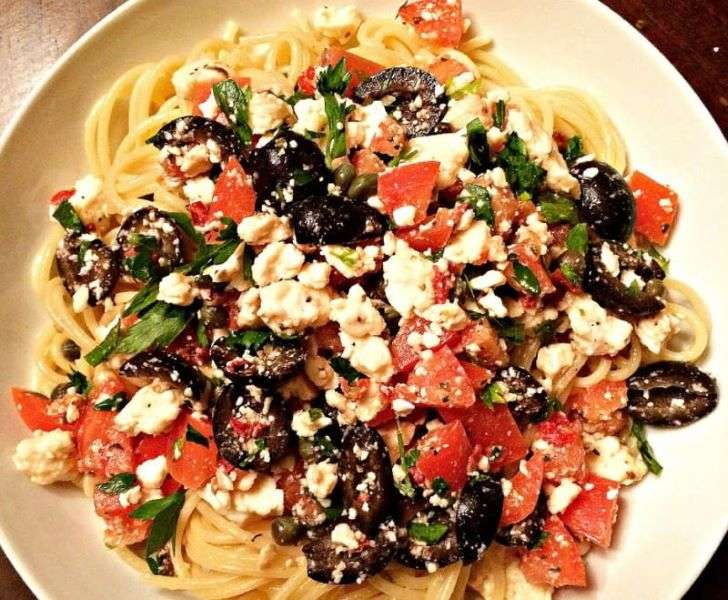
| Component | Serving Size | Calories (Approx.) | Nutritional Highlight |
| Whole-Wheat Pasta | 1 cup | 210 kcal | Fiber and slow-digesting carbs |
| Olive Oil | 1 tbsp | 120 kcal | Heart-healthy fats |
| Mixed Vegetables (Spinach, Cherry Tomatoes, Bell Pepper) | 1 cup | 70 kcal | Vitamins and antioxidants |
| Feta Cheese | 2 tbsp | 80 kcal | Calcium and protein |
| Total Calories | ≈480 kcal | ||

5. Lentil Soup with Whole-Grain Bread
It's a warm and comforting food for cooler evenings, and it's a low-carb option. Lentils provide a plant-based source of protein and fiber that helps promote feelings of fullness. Moreover, whole-grain bread adds a steady source of energy. This recipe is suitable for both weight-loss and maintenance plans.
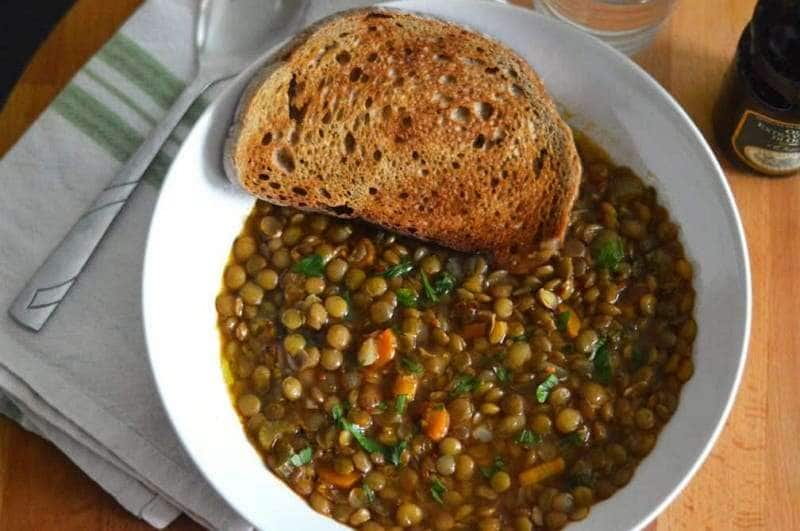
| Component | Serving Size | Calories (Approx.) | Nutritional Highlight |
| Lentil Soup | 1 bowl | 300 kcal | High fiber and plant protein |
| Whole-Grain Bread | 2 slices | 160 kcal | Complex carbs and minerals |
| Olive Oil Drizzle (Optional) | 1 tsp | 40 kcal | Healthy fats |
| Total Calories | ≈480 kcal | ||
Part 4. 5 Tips to Keep Your Dinner Within the Right Calorie Range
Now that you know how many calories a dinner should be, adhere to the tips given below and keep your dinner within the right calorie range:
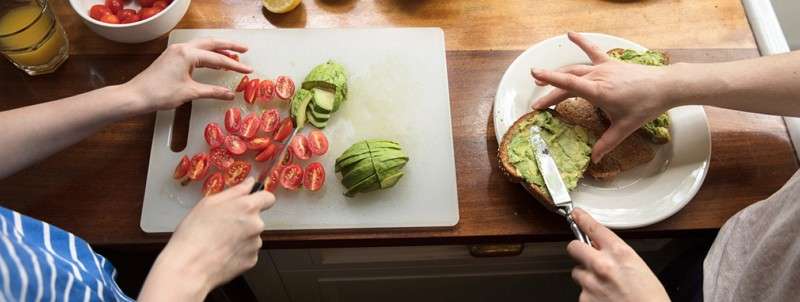
- Use Smaller Plates: A small plate naturally limits food portions without feeling restrictive. Your mind believes you ate more, which helps reduce calorie intake.
- Fill Half Your Plate with Vegetables: Use vegetables, as they are low in calories and high in fiber, which helps keep you full longer. They also add color and nutrients that enhance the overall quality of the meal.
- Choose Lean Proteins: Select chicken, fish, tofu, or lentils instead of fried or fatty meats. Lean protein supports muscle repair and controls hunger after dinner.
- Avoid Heavy Sauces and Drinks: Creamy sauces and sweet beverages add calories without providing real nutritional value. So, use lemon juice, herbs, or olive oil for a light, natural flavor.
- Track Your Dinner Calories: For this purpose, use the innovative CalBye app, which helps you track what you eat and stay within your daily calorie target. It offers easy meal tracking and innovative portion suggestions. Not to mention that the app is AI-based and provides an accurate calorie estimate simply by taking snaps. You can also upload food pictures from calories or use the barcode scanner to count calories on packaged foods.
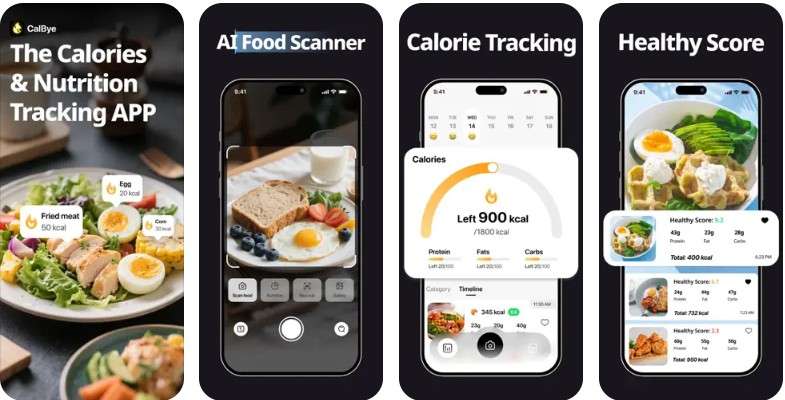
Additionally, users can interact with AI to analyze the meal via conversion. Above all, you can categorize the meals and add a meal from the Suggestions tab. The best aspect of this app is that, in addition to counting calories, it also offers alternative meal options that you can add to your favorites. In short, using this innovative AI calorie tracker is seamless, making it an ideal choice for both professionals and beginners.
Key Features
- Track Your Achievements: The app features a dedicated 'My Achievements' section, enabling you to monitor your progress toward your goals easily.
- Offers Advice: Within the calorie report, you can also get food advice from AI to keep your diet healthy and fulfilling.
- Track Water Intake: Users can also use it to monitor the water intake while managing the weight goals.

Guide to Track Dinner Meal Calories with CalBye
To further know how many calories my dinner should be, learn how you can use CalBye to track your dinner calories:
Step 1. Access the AI Scan Meal Feature
Press the "Scan Meal" option on the main interface as you continue setting up the application.
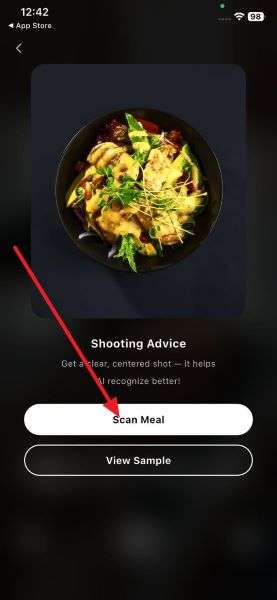
Step 2. Scan the Meal or Take an Image from the Gallery
Take a picture of a meal within the "Scan Meal" tab or import the food image from the gallery.
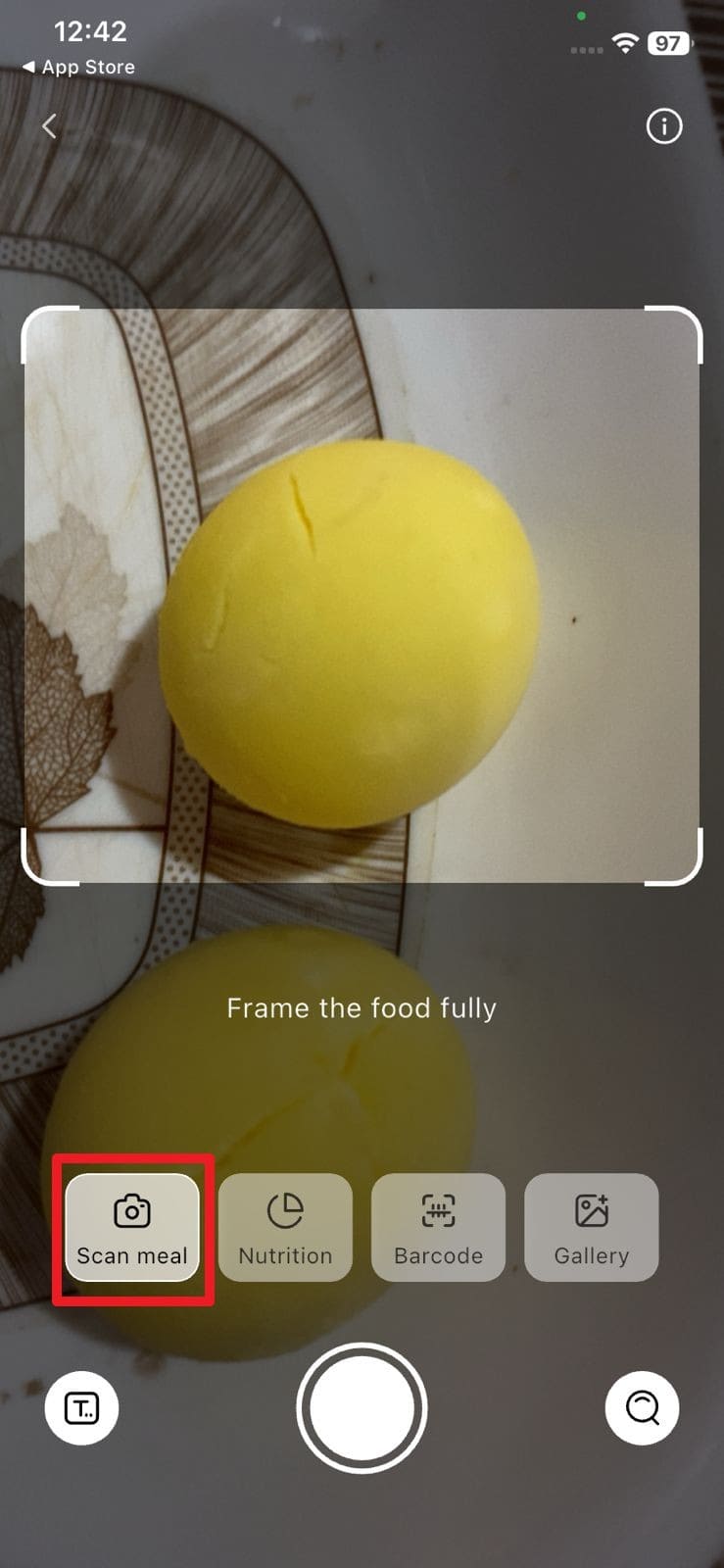
Step 3. Access the Calorie Report and Finish the Setup
When the app completes the scan, review the detailed report, and then choose the "Log It" option to complete the setup.
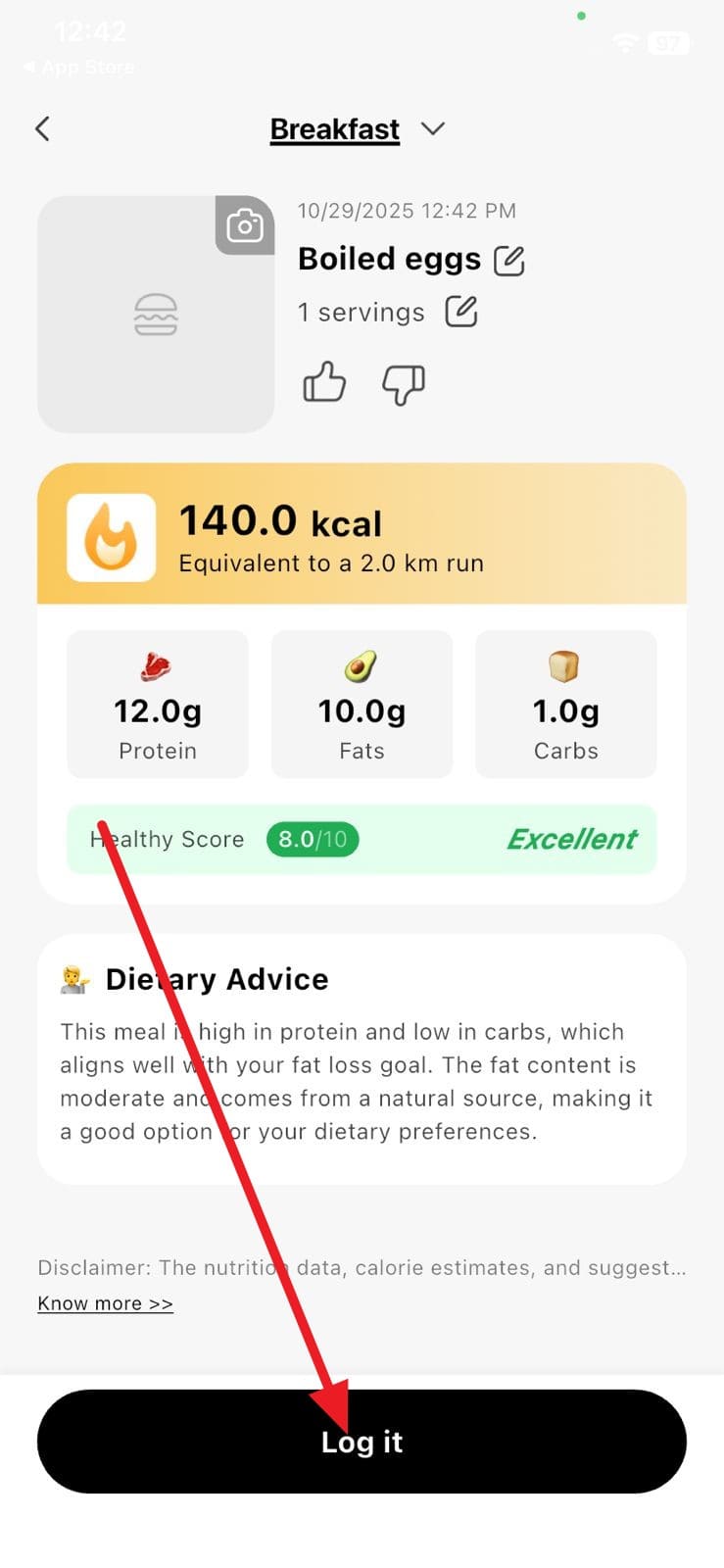
Conclusion
To wrap up, many users wonder how many calories a dinner should contain and how to maintain a healthy weight. Thus, this guide has provided you with an estimated calorie intake based on your age and weight goals. Besides, try simple recipes and keep track of the calories with CalBye. This app is recommended because it is AI-powered and helps you maintain a healthy life.

FAQs
-
How does dinner affect sleep quality?
A light, balanced dinner helps the body relax and promotes deep sleep. In contrast, eating heavy or spicy meals close to bedtime can disrupt digestion and make it harder to rest comfortably. -
What happens if I eat a heavy dinner regularly?
Eating large dinners often can overload the digestive system, leading to bloating, sluggishness, and gradual weight gain. Over time, it may also disturb your sleep and slow your metabolism. -
When is the best time to have dinner for proper digestion?
Ideally, have dinner at least 2 to 3 hours before going to bed. This gives your body enough time to process food, reduces the risk of acid reflux, and supports smoother digestion and better rest. -
Does dinner timing affect body fat storage?
Yes, eating late at night can increase fat storage because your body burns fewer calories while resting. Having dinner earlier encourages better nutrient use and helps maintain a healthy metabolism.






